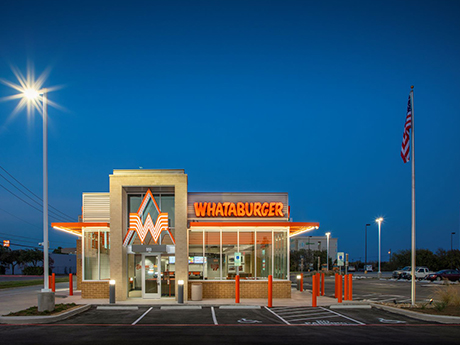Charlotte: “The Queen City” named after Queen Charlotte, wife of George III, has been on a tear post-COVID with new and expanding retail concepts. Vacancy rates have hovered under 4 percent the last few years, with little signs of changing , according to research from Institutional Property Advisors (IPA). Much of that vacancy has occurred in less desirable markets, or in junior and big-box bankruptcies (JOANN, Big Lots, Party City, etc.) that are being snatched up as quickly as they become vacant.

Tenants are desperate and clamoring for new locations to keep up with the strong residential growth (24,000+ new residents in the city limits in 2024 and 46,000 in the CSA), making charlotte the 14th largest city in the country, and 19th-largest CSA in terms of overall population. This factor combined with unemployment hovering in the low 4 percent range, plus household income growth has called for desperate measures to ID new space or weakness in the market.
We as local experts have seen a slight uptick, over the past 12 months, in some “shadow inventory.” This occurring when an existing retailer or restaurant might be struggling with sales, or in partial default, and the landlord has the opportunity to potentially take the space back either through the following: buyout, lease termination, or eviction, depending on each individual situation and tenant financial health. These spaces never officially hit “the open market” thereby never affecting the overall health of the market, since they are quickly replaced with a new tenant.
Average market rents are just over $21 per square foot, up from an average rent of $15 per square foot back in 2018, stacking up very solid gains for landlords and owners. Also putting pressure on tenants to innovate and compete at the highest level to gain new sales and retain customers.
New market entrants recently opened or announced include the following: Primark, Sierra Holdings, ZARA, Rag & Bone, Tommy Bahama Marlin Bar, just to name a few. The outparcel and high-profile endcap world is chock full of new names and competition with banks (Chase, Fifth Third, Huntington, U.S. Bank, etc..), restaurants (Whataburger, Raising Cane’s, Coopers Hawk, The Salty Donut, Dutch Bros., Portillo’s, North Italia, Flower Child, Sweetgreen) all clamoring for space.
Meanwhile existing tenants in the market continue to innovate such as the following: Sprouts Farmers Market (new urban format store in a mixed-use project in the NODA neighborhood opening this summer), IKEA (smaller-format store recently opened at Promenade at Providence), Chipotle with Chipotlane (multiple locations) and Chick-fil-A with drive-thru only (multiple locations).
Grocery stores continue to densify store count by chasing new residential outcroppings, both in the denser intown areas as well as suburbs. Led by Publix on new store growth, and followed closely behind by Harris Teeter, Sprouts Farmers Market and Lowes Foods. Target and Walmart Supercenter have been bubbling up on new site plans in various submarkets around the market as well.
Recent high-profile retail development openings include Northwood Retail’s the Ballantyne Bowl, including the Charlotte’s regions first Wegmans that will open in 2027. The more than 70,000-square-foot grocery store will be surrounded by a large format multi-use office and residential area. Also coming is a slate of new retail centers just over the South Carolina border in Indian Land.
Target, Costco and Lowes Foods are among the largest tenants, with others opening or set to open new locations in the submarket this year, chasing new suburban growth and more favorable property taxes (than its Mecklenburg County neighbor).
Later this year, the much-anticipated opening of The Commonwealth in Charlotte’s historic Plaza Midwood will take center stage, being developed by Crosland Southeast and Nuveen. The development will include more than 100,000 square feet of retail space in a mixed-use setting on 12 acres with dense multifamily and office.
Austin-based Uchi, will anchor the restaurant lineup, with many other sought-after retailers and restaurants set to open. It will redefine this 100-year-old neighborhood, long defined by arts and crafts bungalow housing and hip local restaurants and breweries.
Lastly, the Charlotte airport continues to be a huge economic driver for the region with an estimated $30 billion impact. Multi-year renovations continue to wrap up, as the airport continues to soar to astounding altitudes. It now functions as the sixth-busiest airport in the world for total takeoffs/landings (596,000+), 23rd globally for passenger traffic (seventh in North America), welcoming 58.8 million visits in 2024.
The airport serves as a shining beacon with its lobby rocking chairs welcoming visitors and new residents ready to experience the best that this relaxed, laid back, dynamic Southern City has to offer.
— By Andy Misiaveg, Partner, TSCG. This article was originally published in the June 2025 issue of Southeast Real Estate Business.


